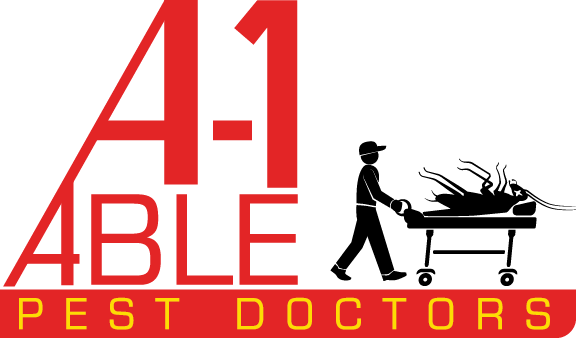According to the World Health Organization, approximately 725,000 human deaths are caused by mosquitoes each year.

What are the different kinds of mosquitoes that could affect you, and their estimated distribution across the United States? Are normally what everyone wants to know in order to protect their family. Let us give you some information that will guide you through these questions.

https://commons.wikimedia.org
The first step to a solution is to understand the problem, so let’s first discuss the life cycle of this insect.
The average mosquito’s life span range from 10-14 days, from egg to adult. Depending on environmental conditions, the life span can be shorter or longer. Disease transmission occurs when a mosquito bites on an infected bird or mammal, then bites a human. There are different kinds of mosquitoes that carry diseases, and these are the ones that you should be aware of:
The West Nile Virus–carrying Culex tarsalis

en.wikipedia.org/wiki/Mosquito
Commonly known as the Encephalitis mosquito, the tarsalis bites at dawn and dusk but can also feed in the night. There is also a similar one called Culex pipiens, known as the northern house mosquito, that carries the St. Louis Encephalitis disease. Their choices of breeding spots are limited. They only breed in water entrapped areas, such as tree holes, cans, gutters, barrels, and catch basins.
Note that only female mosquitoes are capable of biting, and they must have a blood meal in order to develop eggs. Male mosquitoes are nectar feeders and do not have mouth parts for puncturing.
The Malaria-carrying Anopheles quadrimaculatus

Lastly, the Zika Virus-carrying Aedes aegypti
This species is recently becoming popular due to their ability to carry Yellow Fever and the Zika Virus. Also one of the more long-lived mosquitoes, living up to 50 days. A similar type, the Aedes albopictus (also known as the Asian Tiger Mosquito), are more aggressive and are also capable of transmitting Encephalitis, Yellow Fever, Dengue Fever, Dog Heartworm, and the Zika Virus.
Estimated range of Aedes sp. in the United States, 2016
The maps show the Center for Disease Control and Preventions’ (CDC) best estimate of the potential range of Aedes aegypti and Aedes albopictus in the United States. They show the areas where mosquitoes are found, or have been previously found. What they DO NOT show are the exact locations and numbers of mosquitoes currently living in an area, nor does it show the risk these mosquitoes will spread viruses.

www.cdc.gov
Quick Facts You Need to Know About the Zika Virus
- There is evidence that suggests the Zika Virus can be sexually transmitted.
- Malaria-fighting bed nets are ineffective in stopping Aedes sp. because they are active during the day. Reducing breeding sites and using insecticides are currently the most effective ways to prevent the disease
- Symptoms of Zika Virus are mild and begin a few days after being bitten. Around 80% of infected people never experience symptoms. Those who do experience fever, rash, and conjunctivitis.
- Currently, there is no vaccine for the Zika Virus but researchers are working on one. Once a person becomes infected, they usually develop immunity to future infections.
- There is a possible link between the Zika Virus in pregnant women and microcephaly in their babies. It is thus crucial for pregnant women to strictly follow steps that prevent mosquito bites.
- The CDC recommends that pregnant women in any trimester should consider postponing travel to areas where the Zika virus is prevalent. Travel advisories are available in the CDC’s website
As a recommendation, we have a Mosquito Management Program that is intended to help reduce the breeding and resting sites of mosquitoes around your property. This reduces the risk of being bitten by mosquitoes in the future. To further reduce the risk of mosquito bites, our program has the following obligations for the customer:
- Dispose of old tires, tin cans, buckets, drums, bottles, plastic sheeting, and any water holding container
- Clean debris from rain gutters to allow proper drainage
- Fill in order in low places (puddles rut) in the yard
- Keep drains, ditches, and culverts clean of weeds and trash so water can flow properly
- Cover trash containers and keep out rainwater
- Check around outdoor faucets and air conditioner units and repair leaks or puddles
While there are several other responsibilities to keep in check, it’s extremely difficult to completely eliminate the chance that mosquitoes can bite you. For the full details in managing your property, contact the Pest Doctors.
continue reading
Related Posts
Mosquito control is a critical health and environmental issue. Traditional […]
 Worldwide, mosquitoes are responsible for more death and disease than any other animal. At your backyard barbecue or pool party, they’re unwanted guests that can range from a mere nuisance to a legitimate health hazard.
Worldwide, mosquitoes are responsible for more death and disease than any other animal. At your backyard barbecue or pool party, they’re unwanted guests that can range from a mere nuisance to a legitimate health hazard.Unlike many pests, which are just that, mosquitoes can be carriers of disease, even in areas like Ohio that would never be confused with tropical. They’re most active in the Buckeye State in warm months, typically May through October (or whenever the fall sees its first hard frost). Ohio has 59 species of mosquito, some of which can transmit encephalitis and West Nile virus in humans and heartworms in dogs, making preventative steps paramount.



